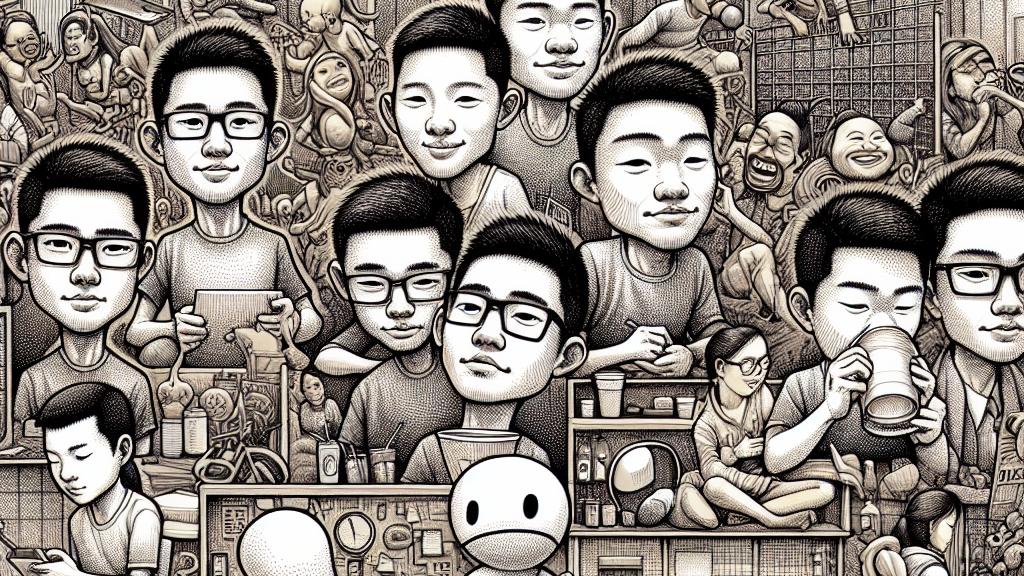The Emergence of 'Invincible People' in China and Its Reflection on Japanese Society
Overview
- The term 'Invincible People' captures a growing feeling of disillusionment among Chinese youth, leading to significant discussions about mental health and societal expectations.
- This phenomenon closely parallels Japan's post-bubble societal struggles, underscoring a shared youth crisis across two culturally rich nations.
- Escalating economic stagnation drives young individuals in both countries to abandon conventional paths, favoring alternative lifestyles that prioritize personal fulfillment over societal norms.

Understanding the Rise of 'Invincible People'
In recent years, the term 'Invincible People' (无敌之人) has taken hold in China, symbolizing a disenchanted segment of the youth population who feel marginalized and powerless within an increasingly competitive society. These young individuals often battle with significant issues: soaring unemployment rates, crushing student loans, and societal expectations that loom over them like an insurmountable cloud. For instance, after graduating, many find job opportunities scarce, forcing them into low-paying or unsuitable jobs simply to make ends meet. The rise of such sentiments echoes Japan's experience following its economic bubble's abrupt end in the 1990s, where numerous young adults found themselves disillusioned and adrift. As a response, many from both nations have gravitated toward the concept of 'Lying Flat' (躺平)—a movement advocating for minimalism and intentional disengagement from relentless societal pressures. This lifestyle choice is not just a rejection of societal norms; it's a quest for meaning and contentment amid chaos.
Social Parallels Between China and Japan
The challenges confronting the youth in China today bear a striking resemblance to those faced by Japanese youth in the aftermath of their economic collapse. After Japan’s bubble burst, young individuals became known as the 'Lost Generation,' struggling to navigate a world where stable employment and fulfilling careers felt utterly out of reach. Fast forward to today's China, where a similar narrative unfolds: the youth perceive traditional milestones such as marriage, career, and family as increasingly unattainable, opting instead to embrace alternative paths. Take, for example, the Chinese youths who share their journeys on social media, proudly showcasing their 'lying flat' lifestyles, moments of leisure, and personal projects rather than conforming to conventional markers of success. This shift not only illustrates their growing discontent with societal expectations but also highlights a deeper cultural transformation, where the quest for happiness and self-actualization takes precedence over traditional achievements.
Consequences of Economic Disillusionment
The correlation between economic disillusionment and youth crises in both China and Japan raises critical questions about societal wellbeing and the future of these nations. As countless 'Invincible People' in China grapple with a profound sense of helplessness, fearing that their aspirations are futile, they risk falling into patterns of despair and isolation. In Japan, such sentiments have historically led to cases of 'hikikomori,' where individuals withdraw completely from society, a phenomenon that continues to affect many today. This alarming retreat from social engagement has significant repercussions, not only for the individuals involved but for society as a whole, further fracturing community bonds and stifling fresh ideas. Consequently, it is essential for policymakers to recognize these trends and implement targeted initiatives that promote mental health awareness and provide guidance tailored to the evolving aspirations of young people. For instance, programs offering emotional support and career coaching can empower young individuals to reclaim agency over their lives, transforming their experiences of disillusionment into pathways toward empowerment and agency.

Loading...